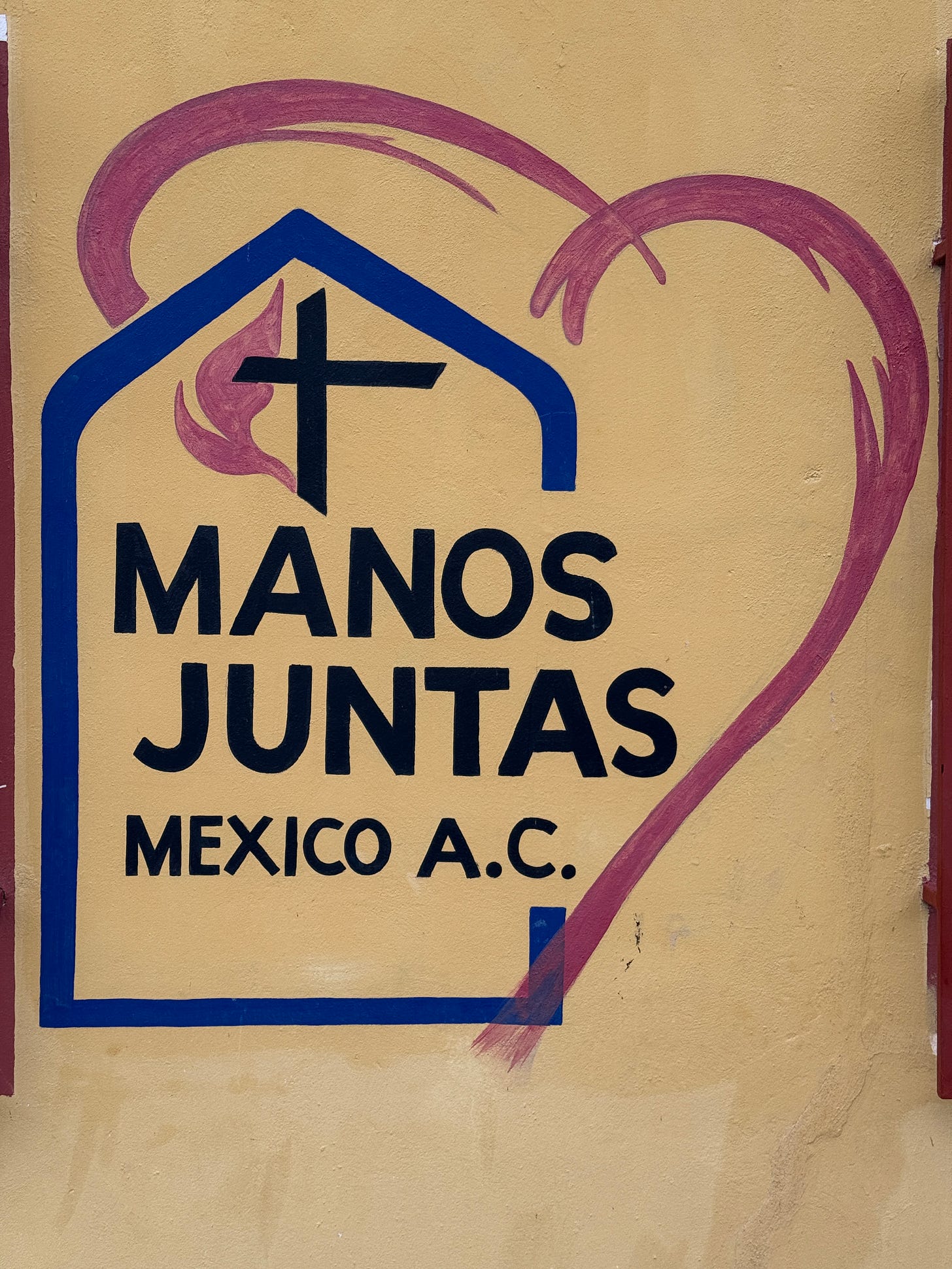Mission in Mexico - Wrap Up
How can I summarize this experience?
Here’s my final post about what I’ve been doing in Mexico.
I’ve always had a problem that has evolved in my thinking like this:
a) there is a tremendous amount of need in the world.
b) I want to help, but I can’t do everything.
c.) We have so much here in the U.S., even our poorest citizens have more resources.
d) I want to learn about other cultures and other places.
e) I need to pick my battles.
When I was going through this more than 30 years ago, I decided to focus on one region of the world. I spoke a little Spanish (very little, in retrospect), so I chose Latin America — Mexico and Central and South America. It has a completely different culture, yet it is geographically close, so I can afford to visit. My first trip in the area was to Guatemala, which I loved. I joined the board of the Chicago Religious Leadership Network for Latin America, and I learned more about the struggles that different countries have had. I’ve continued to work on my Spanish, which has improved a lot, and now I’ve visited more than ten Mexican cities and attended four different Spanish language schools. That brings me to my recent mission project.
I didn’t pick this ministry location at first. The General Board of Global Ministries (GBGM) trained me as a Mission Volunteer. GBGM has a number of mission sites all over the world. I told them that I wanted to use my Spanish, and I got a list of several possible places. For some reasons that I still don’t understand, the first two sites I applied to didn’t accept me. Next on the list was Manos Juntas, in Rio Bravo, México.
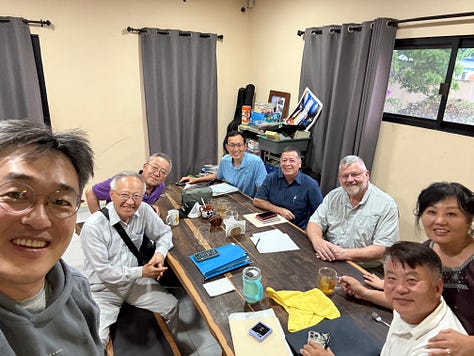
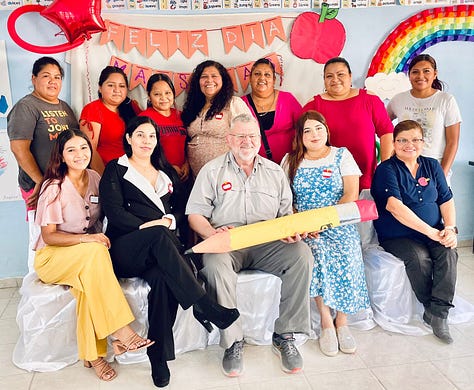
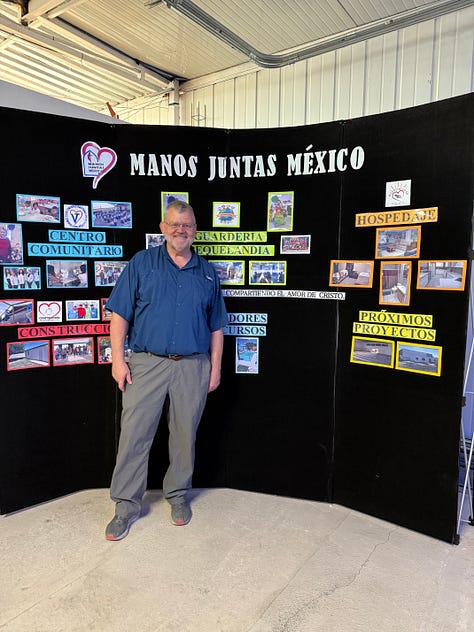
I had met the Mexican missionary at Manos Juntas, Willie Berman, at a Northern Illinois Annual Conference of the United Methodist Church. He was an engaging speaker, but that is about all that I remembered about him. So I was pleased when I arrived to find that he is bright, witty, and committed to the mission of Manos Juntas. He has allowed me to do much more that I originally planned. I’ve been involved in helping to develop the strategy for the future of the ministry, which involved interviewing all of the program coordinators and pulling their needs and desires into a report.
I’ve been surprised by how quickly I have developed strong feelings for the people here, both for staff members and students and the children that we serve. I really want to help them. Many of them are people with deep faith. One coordinator told me, “I can’t tell you the number of times when we had no food for the children, and I prayed, and somehow food arrived. God is good.” I’ve come to appreciate how difficult it is to manage the donations that do arrive. Every ministry program has needs, and if food is purchased, then there is no money for books. The needs never stop. So people get incredibly creative. The teachers develop their own worksheets and teach songs from their childhood. Clothing is recycled from child to child and family to family.
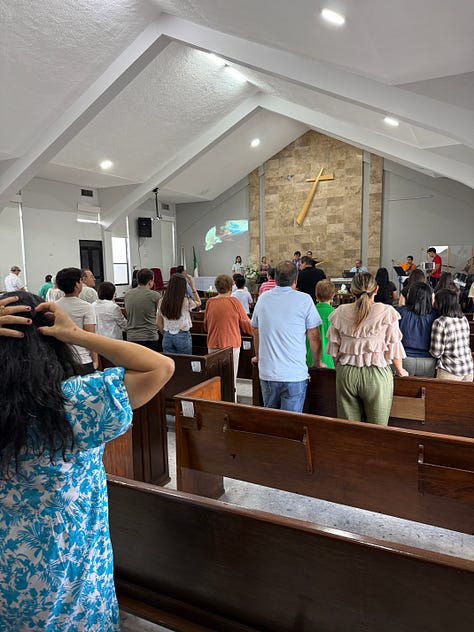
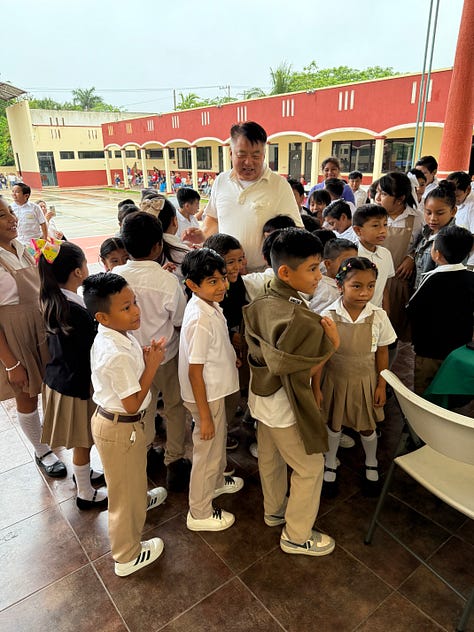
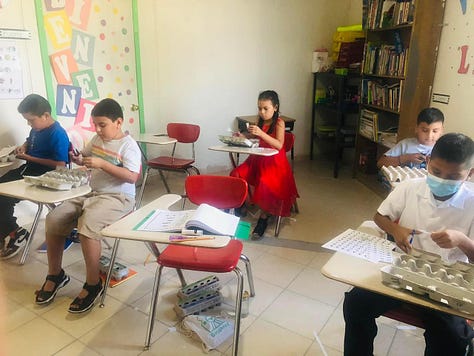
Willie Berman leaves his family several times a year to go to the United States to make presentations at different local churches. He explains how difficult life can be for the poorest people here, and how Manos Juntas can help. Some churches are able to respond with donations, and others send prayers and encouragement. He wants to make each ministry program self-sufficient, which means developing money-making activities. This is extremely difficult in an area with so much poverty. So he solicits donations.
I think about what I am doing, and I remembered that Henri Nouwen wrote, “Can you drink the cup? Can you empty it to the dregs? Can you taste all the sorrows and joys? Can you live your life to the full whatever it will bring?” I realized these were our questions. But why should we drink this cup? There is so much pain, so much anguish, so much violence. Why should we drink the cup? Wouldn't it be a lot easier to live normal lives with a minimum of pain and a maximum of pleasure?” I don’t know why I feel pulled in this direction. There was a part of me that just wanted to retire to an easier life on a beach somewhere, but I was restless. I wanted to make some kind of difference.
It is easy to fall into despair about the situation here, and all the obstacles to improvement. Nouwen wrote, “I see millions of lonely, starving faces all over the world, and large piles of the dead bodies of people killed in cruel wars and ethnic conflicts. Whose cup is this? It is our cup, the cup of human suffering. For each of us our sorrows are deeply personal. For all of us our sorrows, too, are universal.” I know that these parts of Mexico are just small areas that need help in a very big world of need. But whenever I go to one of the Manos Juntas programs, I see children being educated who cannot afford public school, I see children being fed who would otherwise be hungry, and I see caring staff members showing God’s love to kids who are not always treated well at home. In my mind, that makes all this worth it.
If you’ve been following my posts from Mexico, thank you. I’ll keep writing in the future as things develop.
I’m ending all these posts the same way:
Everything is funded through donations. Giving is easy through the United Methodist Advance site - click here. Every little bit helps.
Please send a prayer or kind thought down to the people of Manos Juntas. They all help, too.


